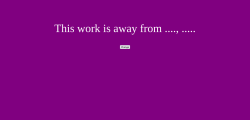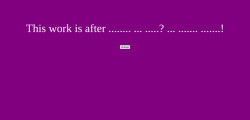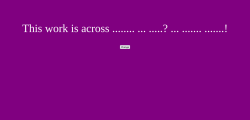P-Prompt: Prepositions: Difference between revisions
No edit summary |
No edit summary |
||
| Line 1: | Line 1: | ||
'''[[Biographies#Séverine Dusollier|Séverine Dusollier]]''', a long time collaborator of [[Biographies#Constant|Constant]] and inspiring conversation partner for thinking about critical approaches to copyright and intellectual property, is trained as a lawyer and works as a researcher and teacher in Paris. With her persistent work on collective authorship, inclusive property and attribution otherwise, she brings a perspective to the project that is grounded in legal practice. | '''[[Biographies#Séverine Dusollier|Séverine Dusollier]]''', a long time collaborator of [[Biographies#Constant|Constant]] and inspiring conversation partner for thinking about critical approaches to copyright and intellectual property, is trained as a lawyer and works as a researcher and teacher in Paris. With her persistent work on collective authorship, inclusive property and attribution otherwise, she brings a perspective to the project that is grounded in legal practice. Séverine sent us several prompts after we met for an afternoon to record a [[LINK TO CONVERSATION|conversation]]. | ||
In the prompt | In the prompt ''Prepositions'', originally developed for the work session ''[[Glossary#Revisit Reuse|Revisit Reuse]]'', she proposed us to reconsider the way copyright sets up particular relationships with creative works, asking whether changing singular pronouns into plural pronouns would be sufficient to move from individual genius to collective practice. | ||
Building on Séverines suggestion to think through the complexities of language and its performativities for widening our imagination for the kinds of relationships that potentially could exist around creative works, we decided in this prompt to focus on the ways we articulate semantic roles in time, space, and directionality. Riffing on her game with prepositions and pronouns, we experiment with a range of combinations that each open up different possibilities for relating to a creative work. | Building on Séverines suggestion to think through the complexities of language and its performativities for widening our imagination for the kinds of relationships that potentially could exist around creative works, we decided in this prompt to focus on the ways we articulate semantic roles in time, space, and directionality. Riffing on her game with prepositions and pronouns, we experiment with a range of combinations that each open up different possibilities for relating to a creative work. | ||
Latest revision as of 15:17, 25 July 2024
Séverine Dusollier, a long time collaborator of Constant and inspiring conversation partner for thinking about critical approaches to copyright and intellectual property, is trained as a lawyer and works as a researcher and teacher in Paris. With her persistent work on collective authorship, inclusive property and attribution otherwise, she brings a perspective to the project that is grounded in legal practice. Séverine sent us several prompts after we met for an afternoon to record a conversation.
In the prompt Prepositions, originally developed for the work session Revisit Reuse, she proposed us to reconsider the way copyright sets up particular relationships with creative works, asking whether changing singular pronouns into plural pronouns would be sufficient to move from individual genius to collective practice.
Building on Séverines suggestion to think through the complexities of language and its performativities for widening our imagination for the kinds of relationships that potentially could exist around creative works, we decided in this prompt to focus on the ways we articulate semantic roles in time, space, and directionality. Riffing on her game with prepositions and pronouns, we experiment with a range of combinations that each open up different possibilities for relating to a creative work.
https://titipi.org/files/revisitreuse/prepositions.html
The interactive visualisation of this prompt reuses The slogan generator by De Geuzen (2000), which in turn reuses code "supplied free" by http://www.hypergurl.com


